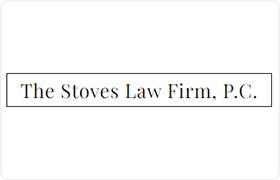 Shelby County, AL Felony Lawyers
Shelby County, AL Felony Lawyers
Sponsored Law Firm
-
 x
x

Click For More Info:
-
The Stoves Law Firm, P.C.
9 Office Park Cir Suite 105 Birmingham, AL 35223» view mapCriminal Defense Legal Expertise You Can Rely On
The Stoves Law Firm, P.C. provides outstanding Criminal Defense and Litigation services to individuals and businesses throughout the State of Alabama.
800-818-9390
Not enough matches for Shelby Felony lawyer.
Below are all Shelby lawyers.
Sponsored Lawyers
1-10 of 54 matches
725 West Street
Montevallo, AL 35115
Criminal, Estate, Divorce & Family Law, Accident & Injury, Personal Injury
Adoption, Banking & Finance, Bankruptcy Litigation, Bankruptcy
Adoption, Alcoholic Beverages, Alimony & Spousal Support, Dispute Resolution
Collection, Commercial Bankruptcy, Commercial Real Estate, Construction Liens
Accident & Injury, Car Accident, Products Liability, Wrongful Death, Complex Litigation
Real Estate, Consumer Rights, Banking & Finance, Products Liability
Divorce & Family Law, Criminal, Civil & Human Rights, Bankruptcy, Accident & Injury
Divorce & Family Law, Criminal, Accident & Injury, Litigation



 Jay Stoves Birmingham, AL
Jay Stoves Birmingham, AL Practice AreasExpertise
Practice AreasExpertise


